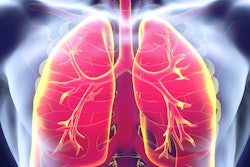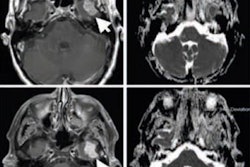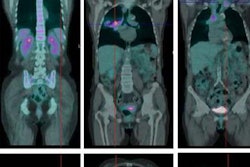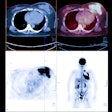FDG-PET can be used to monitor and predict outcomes from immunotherapy treatment of non-small cell lung cancer (NSCLC), according to research presented this week at the Society of Nuclear Medicine and Molecular Imaging (SNMMI) conference in San Diego.
In a phase II trial involving 138 NSCLC patients from 28 clinical institutions in five countries, researchers prospectively evaluated the use of FDG-PET in patients being treated with atezolizumab, a novel immunotherapy agent. Quantitative PET results from scans performed at baseline and after six weeks of treatment showed that higher baseline tumor volumes of FDG were predictive of reduced patient survival.
Furthermore, an additional increase in tumor volume at six weeks was a sign of decreased patient survival, according to the group led by Jill Frederickson, PhD, a clinical imaging scientist at biotechnology firm Genentech.
"These findings help define the potential role of FDG-PET as a prognostic and predictive biomarker in the treatment of lung cancer with such immunotherapeutics," Frederickson said in a statement by the SNMMI.




















